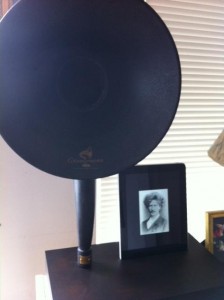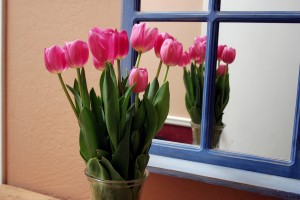The world is a very different place than it was thousands of years ago when Feng Shui principles were first observed. There was no electricity in homes, nor satellites in space, mobile phones, or Internet (surely I’m not the only one who remembers life before the Internet…). While some manmade inventions can create some challenges from an energetic perspective, there are some technological advances that can help make our living in box-like spaces more convenient – provided they are used in a balanced way.
Over the last decade, digital technology has changed how we store and use photos and music. While I am not 100% convinced that all of this is progress – analogue recordings have a richness that is lacking from digital formats, and real photos don’t pixelate faces and sunsets – the storage and functional benefits can be tremendous. It is possible to have your music collection take up far less physical space and be more immediately accessible, while photos can be running through a digital photo frame, saving on space while generating a flow of memories that can bring great energetic support in a small space.
It is important to use new formats well: ensure that you are not simply storing thousands of digital photographs without looking at them (something pretty much everyone is guilty of). Make a regular habit of loading a new selection of photos into a digital frame – a few old favourites as well as new ones – so that your nervous system isn’t being imprinted by the same memories all the time, something that was always a challenge with expensive framed photographs, which tended to stay in place for too many years. Regularly create new playlists for music to shake things up a bit, being sure to revisit some old favourites while adding new acquisitions to the mix. Your brain will benefit from hearing varied combinations of old and new, enabling you to bridge different parts of your life into your present experience and creating a new soundtrack to your current life scenes.
The e-book phenomenon has its advantages too: books and magazines can be a major source of clutter and energetic stagnation, whereas a single reader can hold a massive number of volumes. This is particularly helpful when traveling, when space is at a real premium, or if living in cramped quarters. I enjoy having interior design magazines as reference, and yet they take up too much space for the amount of time that I might look at them; digital technology can solve that issue (no pun intended). The same for my Harry Potter collection: as much as I loved the physical books and the experience of reading them, I will not reread them often enough to warrant the space they take up… but the digital format takes care of that.
The challenge in all of these is that there is a lack of connection to the ‘analogue’ physical world to which we more deeply belong. Each book has its unique feeling, each record album had its cover and the disc had its texture, and physical contact with a photograph was part of the experience. Nowadays, each email looks the same, lacking the character and individual handwriting of the person who wrote it, unlike with a personal letter; turning the page of an actual book to see what is on the next page is a very different experience when it’s made of real paper, as opposed to always touching the same screen and holding the same device.
While the Feng Shui advantages that these technological developments bring are evident, a home can feel rather soulless when everything is electronic. Aim to bring balance by complementing the old with the new. Colourful art and a few framed photos can add some dimension to your space while digital photos circulate on a frame. An analogue amp can help your digital music sound warmer than it might otherwise (I have my iPad playing through an antique gramophone horn and have purchased an amp that uses tubes). Having some key books in your physical surroundings helps to communicate the ideas and themes that are important to you – just keep the numbers under control. And keep plants, candles, and other more ‘primitive’ natural objects near your electronic devices (but not so near that water or fire threaten electrocution or damage!) to bring to your home a more seamless fusion of manmade and environmentally balancing elements.
May you and your home gracefully balance technology with nature.




Recent Comments